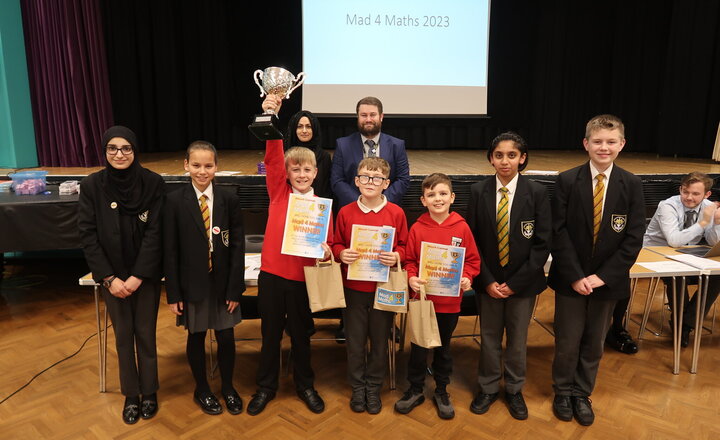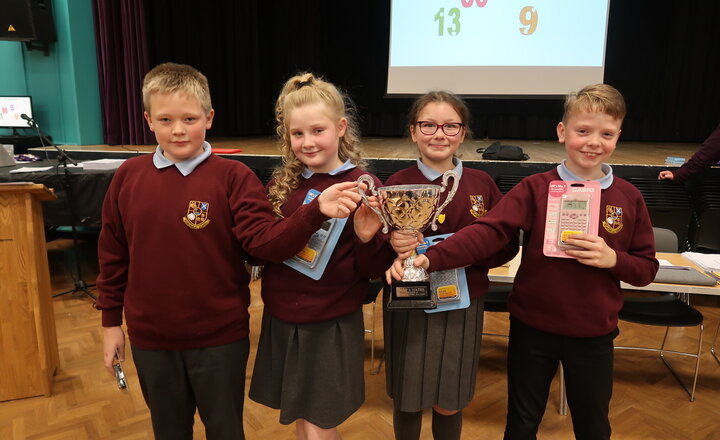Genesis 2:2: “And on the seventh day God finished his work that he had done, and he rested on the seventh day from all his work that he had done.”
Vision
The maths curriculum at Mount Carmel serves all children ensuring that no pupil is disadvantaged. Our curriculum is designed to be inclusive and gives all pupils the opportunity to reach their individual potential as learners regardless of their ability, ethnicity, cultural background, gender or socio-economic circumstances.
Our curriculum has three key principals:
- Deep understanding: our practice embeds the importance of deep understanding. We achieve this by encouraging the pupils to link new knowledge onto previous knowledge enabling pupils to then apply the new knowledge to a variety of problems. We use the pathway from concrete to pictorial to abstract to deepen understanding and their ability to reason.
- Mathematical thinking: we believe that it is essential for students to develop mathematical thinking in and out of the classroom to fully master mathematical concepts. We want students to think like mathematicians, not just DO the maths. During the learning experience pupils should have opportunities to explore, question, hypothesise; applying their knowledge, analysing and evaluating in order to find solutions to the problem.
- Mathematical Language: all pupils should be encouraged to use mathematical language throughout their learning to deepen their understanding of concepts. The way students speak and write about mathematics has been shown to have an impact on their success in mathematics. They develop and use their mathematical vocabulary with proficiency and confidence, not only thinking like a mathematician but also talking like one.
Our curriculum is structured so that all students in a year group are learning the same content at the same time, adjusted to support the ability of all pupils. Throughout our curriculum we also aim to ensure our pupils gain a love and appreciation for all the mathematics around them and will fully enjoy their learning journey in mathematics.
Intent KS3
Key stage 3 curriculum:
Our curriculum map is sequenced with putting depth before breadth. We believe that all of mathematics can be appreciated more fully once a student has a deep appreciation of the number system, therefore we put number sense and place value first to ensure that all understanding builds upon this strong foundation of number. In key stage 3 pupils receive 4 hours of teaching time per week, that is carefully mapped to meet the standards of the key stage 3 national curriculum. We have a member of the department who is train in the numeracy catch up programme. This is in place for 3 days a week for year 7 and year 8 pupils who have not made expected progress at key stage 2.
How will the subject be assessed?
At key stage 3, assessment takes place formatively through low stakes testing in the form of exit tickets and summative in the form of end of unit assessments. Progress checks are put in termly which build in fluency, problem solving and reasoning. Topics are spaced and interleaved from previous unit topics, so pupils have to use recall to be able to answer. We then use the weaker topics from the summative assessments to inform our topics for recall starters, to help build and consolidate skills. Pupils are set homework every week which is assessed by the teacher.
Intent KS4
Key Stage 4 curriculum:
Our key stage 4 curriculum is designed to build upon the skills taught at key stage 3 but going into more depth and providing more opportunities for problem solving and reasoning. Pupils will receive 4 hours per week of teaching time on their GCSE journey. Year 11 pupils who qualify for the pupil premium funding are offered a personalised TA intervention slot either before or after school to help support and accelerate their progress for their final GCSE. Some pupils will also be offered from their teacher, 1 hour a week after school personalised additional learning support (ALS). In year 10 most pupils follow an open curriculum that does not narrow their pathway. Those pupils who are more able will be stretched and challenged in topics to prepare for the higher GCSE. Pupils who make less than expected progress through key stage 3 will follow a more supportive curriculum that is designed to enable pupils to access the foundation pathway.
How will the subject be assessed?
At key stage 4, assessment is ongoing through year 10 that is consistent with the assessments at key stage 3. Pupils are accessed during the middle of their GCSE path with a mock exam consisting of three mathematics papers from the Edexcel 2017 specification series. They are assessed again in year 11 and we use ‘Pin-Point’ learning to track improvements and areas of weakness. These assessments not only allow pupils to experience the unique nature of the mathematics GCSE examinations, but also allow teachers to identify areas for improvement so that appropriate strategies can be put in place to help pupils to improve further, both in and out of lessons. Regular weekly homework’s are set which alternate between recall skills and current topic.
Enrichment and / or extra curricular activities
As a department, we have begun implementing some enrichment and extra-curricular activities which we plan to increase on each year. This year we ran the following activities:
- ‘MAD 4 MATHS’ inter school quiz to help support primary transition (after school)
- Year 7 STEM Drop Down Day with CIEAG coordinator
- Future U Financial Maths Drop down afternoon for KS3
- Year 10 'Maths Feast Competition'
This year we will add the following:
- Future U Financial Maths visits for KS3
- Numeracy trip
- Maths Clinic for KS3 and KS4
- Problem solving Racecourse visit for KS3
Next steps (College, University, career)
What can the subject prepare me for?
- Career opportunities - mathematics and further mathematics are versatile qualifications, well-respected by employers and are both “facilitating” subjects” for entry to higher education. Careers with good mathematics skills and qualifications are not only well paid, but they are also often interesting and rewarding. People who have studied mathematics are in the fortunate position of having an excellent choice of career.
- Employability skills - the reason why so many employers highly value mathematics qualifications are, mathematics students become better at thinking logically and analytically. Through solving problems, you develop resilience and are able to think creatively and strategically. The writing of structured solutions, proof and justification of results help you to formulate reasoned arguments. And importantly you will have excellent numeracy skills and the ability to process and interpret data.
- Preparation for higher education - for progression to many courses at university it is important to have strong mathematics skills. For most science, technology, engineering and mathematics (STEM) degree courses, A level mathematics is a requirement and AS, or A level further mathematics, is often a preferred subject.
Additional resources:
https://www.mathsgenie.co.uk/gcse.html
https://www.pinpointlearning.co.uk/
Edexcel GCSE maths higher and foundation specification:
https://qualifications.pearson.com/content/dam/pdf/GCSE/mathematics/2015/specification-and-sample-assesment/gcse-maths-2015-specification.pdf
Related News

Mad 4 Maths quiz 2023

Mad 4 Maths quiz 2022
